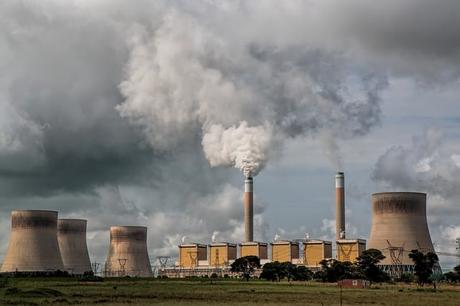Warming of Canada at twice the global rate calls for immediate drastic action to evade catastrophic outcomes. A landmark government online report (“Canada’s Changing Climate Report”) serves as a resource to raise awareness of the issues Canada is currently facing. It also provides necessary information to support actions and decisions addressing climate change and adapt to its impacts warned as per the findings.
“The science is clear – Canada’s climate is warming more rapidly than the global average, and this level of warming effectively cannot be changed,” Nancy Hamzawi, assistant deputy minister for science and technology at Environment and Climate Change Canada, told reporters on Monday.

The report of Environment and Climate Change Canada, authored by Forty-three government scientists and academics was released on Monday. It portrays the sad future of Canada where devastating heatwaves and heavy rainstorms have become a common occurrence.
Since 1948 the global temperatures have increased 0.8C whereas the temperature increased by 1.7C in Canada which is more than double the average global temperature. On the other hand, warming is happening at a much faster rate of 2.3C in the Arctic, the report says.
The increased warming in the Arctic is yet to be understood completely where snow and ice perform a critical role in reflecting heat and radiation of the sun. However, as scientists say, the warming, which is contributing to the retreat of glaciers and disappearing of sea ice, is also one of the factors contributing to the disproportionate increase in temperature in Canada.
Burning fossil fuels is the main reason behind the majority of warming felt in Canada and also around the globe as the report suggests.
To act on the pledge taken to cut emissions by 200m tonnes by 2030, Canada would need to follow Prime Minister Justin Trudeau’s national climate strategy of shuttering coal-fired plants and applying a federally mandated carbon tax.
The grave situation demands urgent action. However, the political battle over climate policy entangled Canada.
Trudeau stressed national carbon pricing strategy, and the federal government imposed the tax on four provinces on Monday that refuse to implement one. On the other hand, conservative politicians consider it as a burden for Canadians and have pledged to remove the tax on their winning the general election on this fall.
However, the federal government decided to give rebate cheques to households to offset any added expenses from the tax under the current plan, thereby making costs negligible to average consumers.
It is clear from the report that the different outcomes Canada faces significantly depends on the choice of emissions reduction policy of the country.
The average temperatures across the country will increase 3C only by 2100, including the Arctic region if global emissions get reduced dramatically under a situation.
In case Canada and other countries fail to act aggressively, there will be likely increases of 7-9 degrees and the prospect of even 11 degrees of warming in the Arctic.
Under the worst situation, there is a risk that devastating heatwaves increases tenfold, triggering droughts and forest fires. Western Canada has already struggled with record forest fire seasons for two years. The vulnerability of occurrence of major rain events also doubles signaling that cities will be inundated by catastrophic urban flooding due to factors like increases in extreme precipitation, snowmelt, rain-on-snow, ice jams, or a combination of the said factors.
The reduced winter snowfalls will even constraint access to the critical sources of fresh water as snowpack becomes a source of clean water on melting.
The effects of global warming such as disappearing sea ice, melting permafrost, and glacial retreat, have already made their occurrence documented and are only set to intensify shortly.
“We are already seeing the effects of widespread warming in Canada,” said Elizabeth Bush, a climate science adviser at Environment Canada, told reporters. “It’s clear, the science supports the fact that adapting to climate change is an imperative. Urgent action is needed to reduce emissions.”

